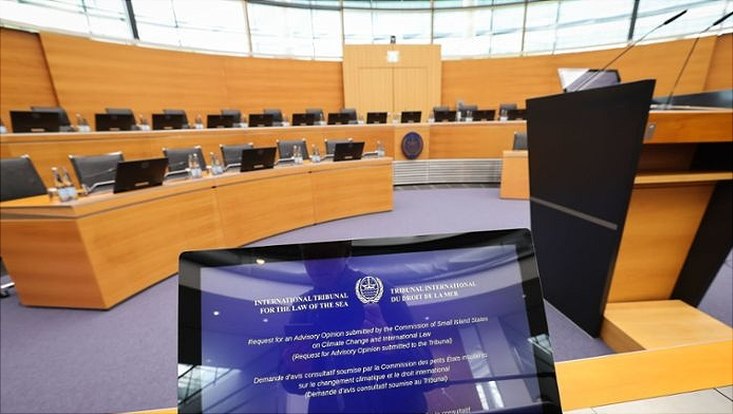New publication: Climate Litigation as a Social Driver Towards Deep Decarbonisation
24. Mai 2024

Foto: dpa/Christian Charisius
Prof. Dr. Stefan Aykut has co-published two new papers:
Stefan C. Aykut, Antje Wiener, Cathrin Zengerling, Jill Bähring
Climate Litigation as a Social Driver Towards Deep Decarbonisation I: A Framework and a General Assessment
DOI https://doi.org/10.21552/cclr/2023/3/10
Abstract
A growing number of court cases are being brought against governments, administrations, and corporations in support of enhanced climate action. This is the first of two articles that examine climate litigation as a social process and potential driver of deep decarbonisation from a perspective that combines legal, social, and political science. Contributing to an emerging interdisciplinary research agenda on the dynamics and effects of climate litigation and on its societal embeddedness, we present and test two analytical tools, the Social Plausibility Assessment Framework and the Global Opportunity Structure for Climate Action. The first article introduces these analytical tools, and applies them to assess the overall evolution of climate litigation and identify developments in its legal and societal context that enable or constrain future driver dynamics. Based on this assessment, we conclude that climate litigation constitutes an important but on its own insufficient driver of deep decarbonisation, which is shaped by, and continuously shapes, legal, socio-political, economic, and scientific scripts and repertoires that enable novel forms of societal agency. The second article further operationalises and illustrates the approach by zooming in on a case-specific level and examining two recent landmark decisions in the Netherlands and Germany.
Cathrin Zengerling, Jill Bähring, Stefan C. Aykut, Antje Wiener
Climate Litigation as a Social Driver Towards Deep Decarbonisation II: Zooming in on Two Cases
DOI https://doi.org/10.21552/cclr/2024/1/4
Abstract
A rising number of climate cases is brought against governments, administrations, and companies in support of enhanced climate action. This is the second of two articles that aim to scrutinise climate litigation as a social process and as a driver towards deep decarbonisation from the perspectives of law, social, and political sciences. Working towards more systematic research on societal embedding and dynamics of climate litigation, we further develop and test two analytical tools, the Social Plausibility Assessment Framework and the Global Opportunity Structure, at two levels.
While the first article presented these analytical tools and analysed general developments in climate litigation in their societal context at an overarching level, this second article zooms into a case-specific level and examines two landmark decisions, Neubauer and others v Germany and Milieudefensie and others v Shell. The analytical approach generates valuable insights about the conditions and effects of climate litigation on both levels. Our results show that climate litigation is a significant driver towards deep decarbonisation that is shaped by, and continuously shapes, legal, socio-political, economic, and scientific scripts and repertoires that enable novel forms of societal agency.


